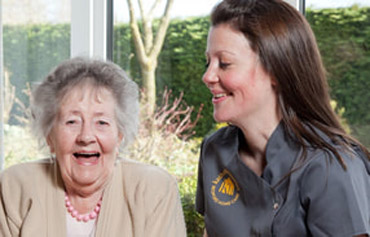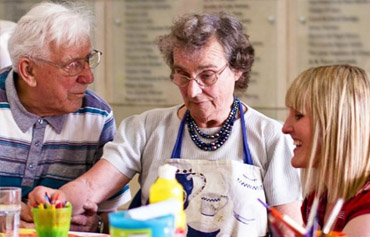What is a Power of Attorney?
Anyone who is aged 18 or older who has the mental ability to make decisions for themselves can arrange for someone else to make these decisions for them in the future. This legal authority is called “Power of Attorney”.
There are two main types of Lasting Powers of Attorney (LPA):
LPA for Health & Welfare
LPA for Property and Affairs
“A diagnosis of dementia gives the person an opportunity to put in place arrangements that he or she wants that will support them as the dementia progresses. Those arrangements range from Powers of Attorney for their financial affairs to arrangements as to who should make decisions over their health and welfare matters when they are not able to.” –Phillipa Bruce-Kerr, Partner, Harrison Clark Rickerby Solictors, Specialising in Powers of Attorney

LPA for Health & Welfare
Having an LPA over someone’s personal welfare may mean you need to make decisions about the healthcare and welfare of the person you are looking after. There may be one or more people with this responsibility, who will each be referred to as the person’s attorney.
If you have this power, you may have to decide:
- where the person is to live
- whether a care home or a nursing home is best for them, and which one
- whether the person can continue to live at home with help from social services
You will be able to decide if the donor should:
- receive healthcare treatment
- not receive a particular healthcare treatment
- stop receiving a particular healthcare treatment
Some people who have a progressive illness sometimes make a decision about whether they would want a particular treatment in the future. They write down or tell others these wishes while they have “mental capacity”.
If the donor made a decision, in advance of losing their mental capacity, to refuse future medical treatment (known as an ‘Advanced Decision’) you cannot override their decision unless the LPA was made later and specifies that you have the power to do so.
A health and welfare LPA does not come into force until such time that the donor has lost the capacity to make decisions for themselves.
There are some decisions an attorney can’t make for another person.
For further information, visit NHS Choices CLICK HERE
LPA for Property & Affairs
If you have property and affairs LPA, as an attorney you will be allowed to make decisions on the donor’s behalf. These include:
- writing cheques and paying bills
- selling or renting property
- carrying out their trade or business
- honouring any contractual obligations
- conducting legal proceedings on their behalf
The attorney is allowed to make gifts in the following circumstances:
- on customary occasions to those related to or connected with the donor
- to any charity to which gifts had or might have been expected to be made
- as long as the value of each gift is not unreasonable in the circumstances
“Customary occasion” means, for example, a birthday, marriage or civil partnership, or any other instance where presents are commonly given within families or among friends or associates.
What is an Advanced Decision?
An advance decision (sometimes known as an advance decision to refuse treatment, an ADRT, or a living will) is a decision you can make now to refuse a specific type of treatment at some time in the future.
It lets your family, carers and health professionals know whether you want to refuse specific treatments in the future. This means they will know your wishes if you are unable to make or communicate those decisions yourself.
The treatments you are deciding to refuse must all be named in the advance decision.
For further information on Advanced Decisions, visit NHS Choices CLICK HERE

What is Dementia and how to spot the signs?
The word Dementia describes a set of symptoms that may include memory loss and difficulties with thinking, problem-solving or language. These symptoms can be a result of various different conditions such as Alzheimer’s Disease and Vascular Dementia.
These symptoms are often small to start with, but for someone living with Dementia they can become severe enough to affect daily life.
Please click on the link below for more information on the different types of Dementia and getting a diagnosis.

Dementia-Friendly
Activities
The best activities for someone living with Dementia are any activities that they love doing.
It could be an activity or hobby they have always enjoyed or something new that they might like to try.
Do you or your loved one enjoy flowers and gardens, or perhaps singing or dancing? These types of activities can really help stimulate the mind and promote wellbeing.
We have put together some ideas and links to help you to find and take part in local activities – click the button below to find out more.

Staying Safe at Home
Local Services
People living with Dementia can live happily in their homes, as long as safety measures are in place.
As Dementia progresses, a person’s abilities may change. But with sound expert advice and problem solving, you can adapt the home environment to support these changes.
Hereford has experts in home safety from whom you can easily ask support.
Click on the button below for more information we’ve compiled about home safety. Please get in touch if you need more information.
